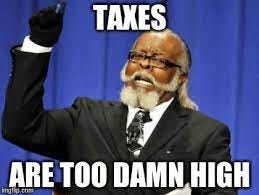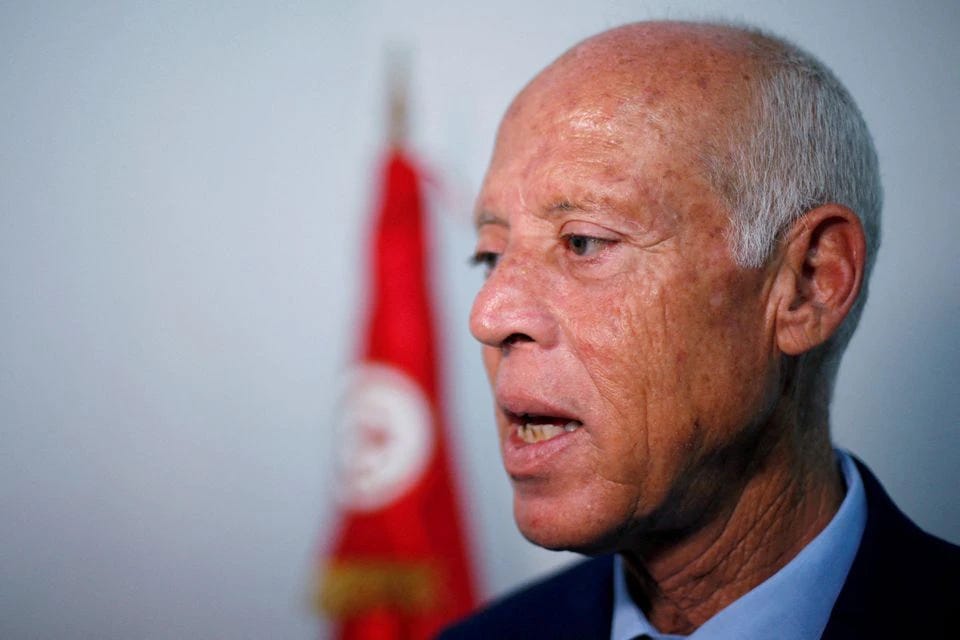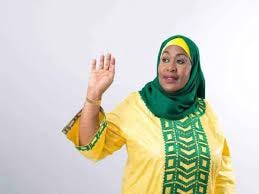Issa Referendum, What a Yahya Guy and No Sleeping!
An update before we get going. Because we love you all so much, we’re planning to do a spotlight of one of our readers or listeners weekly. If you’d like to be the first person, please drop us a line!
Podcast
Song
This episode was edited while we were listening to:
Quote of the week
“All courses of action are risky, so prudence is not in avoiding danger (it's impossible), but calculating risk and acting decisively. Make mistakes of ambition and not mistakes of sloth. Develop the strength to do bold things, not the strength to suffer.”
— Niccolo Machiavelli
What’s Happening in Nigeria?
New Taxes
Last week, Buhari introduced a new tax on phone calls, which aims to fund free healthcare for Nigerian citizens who cannot afford healthcare.
The Fund will be raised from a so-called telecommunications tax, which will be not less than one kobo per second of GSM calls. Estimates reveal that the new tax will bring an average of 90 billion naira per year in revenue to the government
The absurdity and notion of a forced donation brings to mind previous riots and strikes which have been initiated for much less. Sadly, this tax applies to all classes of citizens, including most of the said vulnerable. Those who might be helped by this funding have not benefited in the past and are unlikely to have access to public healthcare in the future. How exactly the government intends to separate the ‘vulnerable’ to make sure that they primarily benefit from this funding remains a mystery. This is a monthly reminder that the social contract in Nigeria is broken.
And here’s a heads up: telecommunications companies are not going to be the ones bearing this new tax. Expect that it will be passed onto Nigerian consumers.
On that note, a word of advice to all Nigerians: stop making phone calls and use Whatsapp and FaceTime Audio, at least before they increase the price of data again…
What’s Going on Across Africa?
Issa refrendum
Tunisia's controversial President, Kais Saied issued a decree on the 25th of May calling for a referendum on a new constitution. According to him, this decision is to save Tunisia from its current political catastrophe. To show his commitment, President Saied has formed an advisory committee which will be led by Professor Sadok Belaid, a leading jurist, and consisting of law and political science deans, but notably excluding political parties, to develop the dream constitution.
We previously reported on President Saied’s opportunistic restructuring of the electoral commission, as well as the other ways he has undermined Tunisia’s democracy, but this move seems to be a step in the right direction - towards more democratic legitimacy. However, as always, his move has some fault. The fact that he excluded other parties has been unpopular, some of the parties have vowed to boycott the scheme and some powerful unions have refused to take part in the process and threatened national strikes.
Some academics have also refused to take part in the process because of President Saied’s unpopularity and somewhat capricious nature.
There is a nationwide fuss about what the turnout for the referendum would be. Set to hold on July 25 , voters will have a simple question: do you agree with the new constitution? Given how Saied’s antics have delegitimised the process, the turnout might be quite low, and that would call any outcome into question. If people vote no, nothing is stopping Saied from going ahead with the constitution. He has obviously proven that he isn’t scared to take unpopular and illegitimate decisions…
No snoozing!
The World Health Organisation has confirmed that sleeping sickness has been eliminated in Benin Republic, Uganda, and Rwanda.
For context, sleeping sickness is a life-threatening disease that predominantly affects poor, rural populations and is carried by the tsetse flies. Some of the symptoms are fever, chills, limb pain, and it also affects the victim’s nervous system. If untreated, the mortality rate is 100%... but not anymore, at least in these three countries.
The initiative to combat sleeping sickness was launched in 2001 but there was no significant progress until 2018, when cases dropped below 1000. Togo and Ivory Coast were the first countries to eliminate the sickness, and now Benin, Uganda, and Rwanda have followed suit.
The World Health Organisation has a goal to completely eliminate one of the most prevalent forms of sleeping sickness by 2030, and it is definitely on track. DR Congo is the country which has battled the most with sleeping sickness as 70% of the cases in the last five years were there, so future efforts to eliminate the disease should focus on DR Congo.
Samia Suluhu-Hassan
Tanzania's current and first female President, Samia Suluhu, conducted a self-evaluation of her performance as President and determined that, in some circumstances, she had managed the country's highest office better than prior male presidents. (Talk your talk!)
She made this statement during an address at a forum in Ghana's capital, Accra. This marked her first official journey to West Africa since her inauguration as president in March 2021, following the death of her predecessor, John Magufuli.
According to her, because of her gender, she encountered skepticism during her first days in office, which she surmounted.
“It was very difficult to make the people of Tanzania trust me. That I can run the country in the same way men do – that was the major challenge,” she said during a session organised as part of the annual African Development Bank (AfDB) meeting.
“In the course of one year I have shown women’s power, I led the country the same way men did and in some circumstances better than they did,” she added.
To back up her claim, she remarked that under her leadership,the country's economic growth rose to 5.2% and was forecast to reach 6.7% by 2025. Also in the week, she was named 2022 winner of the Africa Road Builders– Babacar Ndiaye Trophy for her "personal leadership, enormous investments, and devotion" to expanding Tanzania's road and railway networks
What a Yahya Guy
The Gambia government has announced that it will prosecute its former President, Yahya Jammeh for murder, rape, torture and other alleged crimes committed during his 22-year rule from July 22nd 1994 - Jan 2017.
The Truth, Reconciliation and Reparations Commission which was setup by President Adama Barrow upon resumption to office after winning and putting an end to Jammeh’s dictatorship released a report which recommends that a special international court be set up to try Jammeh and his cohorts in West Africa, but outside of The Gambia.
The report was based on years of witness testimonies of Jammeh’s gruesome acts. Arbitrary detentions, enforced disappearances, and summary executions, according to human rights organisations, were hallmarks of the dictatorship. Some killings were carried out on Jammeh's orders, according to testimonies given to the truth commission by the perpetrators. He has also been accused of administering phony HIV “treatment” programmes and of the massacre of some 50 migrants in 2005.
Former Vice President Isatou Njie-Saidy and members of the so-called "Junglers" hit squad are among the other 69 alleged offenders mentioned in the TRRC’s report.
Emmanuel Joof, the Head of Gambia’s National Human Rights Commission confirms that the recommendation from the report will be implemented, but it is unlikely for all to be implemented.
Kwacha Devaluation
Malawi Government on Thursday May 26th announced a 25% devaluation of its currency – the Kwacha - in a bid to prop up its crashing foreign exchange reserve and curb inflation. The local currency has been devalued in the government's urgent quest to get a new International Monetary Fund (IMF) Extended Credit Facility (ECF) programme to support it through the current economic crisis.
Reserve Bank of Malawi (RBM) Governor Wilson Banda said the decision to realign the exchange rate with economic fundamentals was reached in a statement to authorised dealer banks (ADBs) dated May 26 2022.
Low foreign exchange supply, diminishing official foreign reserves, and a widening spread of rates on the market, according to Banda, have all contributed to supply and demand imbalances in the domestic foreign exchange market.
According to Banda, this has resulted in the currency rate being out of sync with economic fundamentals in the recent past.
"In order to curtail the practice and prevent foreign currency hoarders from doing so," the email continues, "the bank is informing ADBs to modify exchange rates by 25% from the mid-rate as of 26th May 2022 to align to approximately the market clearing level with effect from 27th May 2022."
Economists advised that the government proceeds with caution before devaluing the Kwacha, the local currency, which they believed would push headline inflation even further.
According to Frank Chikuta, Executive Director Economics Association of Malawi, devaluation is a necessary evil in dealing with the country's economic challenges. The only remaining alternative is to cater to the most vulnerable people and prepare for the worst.
Gassy
On a three-day African tour, which began in Senegal, German Chancellor Olaf Scholz expressed Germany's "interest" in assisting in the development of natural gas projects off the coastlines of West Africa.
Despite having Europe's largest economy, Germany's domestic gas production only serves 5% of the population, forcing them to rely on imports from other European countries, including Russia. The GTA gas field, which is jointly owned by Mauritania and Senegal, is one possibility Scholz is considering in Africa. The field, which is already being explored by BP, holds up to 15 trillion cubic feet of natural gas.
After a pandemic-related delay, GTA expects to generate its first barrels of gas in 2023.
The GTA project, which is being led by BP, is estimated to cost $4.8 billion. When it opens next year, Senegal's president Mack Sall wants it to boost his country's liquefied natural gas production to 2.5 million metric tons.
South Africa and Germany
While on his Africa trip, Mark Scholz also paid a visit to Johannesburg on May 24. While there, he was met by South African President Cyril Ramaphosa to discuss a peaceful end to the Ukraine conflict.
They discussed the international community’s need to press for dialogue and negotiations leading to a ceasefire.
Other News
Burkina bakers shut down operations due to the increased wheat prices, caused in large part by the war in Ukraine.
Elon Musk's satellite internet service, Starlink, has received a license to operate in Nigeria and Mozambique.
Namibia-based JABU, a B2B e-commerce startup, raised a $15 million Series A round led by Tiger Global. Other investors in this growth round include Box Group, Knollwood, D Global Ventures, Afore Capital, Oldslip, and FJ Labs.
Uber announced that it has completed 1 billion rides and equally covered over 10 billion kilometres in distance across all its markets in Africa.
PDP, the main opposition party in Nigeria has picked former Vice President Atiku Abubakar as its candidate for the 2023 presidential elections. This will be Mr Abubakar’s third time running for president.
What in the World?
(The segment where we highlight the most outrageous story we have come across while scraping the web for news articles for you. We have taken to using what we call the Ehn scale. The longer the Ehn the more incredulous. For example, President Buhari is not Nigeria’s most prolific travel blogger: Ehnnnnn? Got it?)
MP McSTUNTIN’
On Monday, during a session of the Tanzanian Parliament, Mr Flatei Massey reminded the government that it had repeatedly failed on its promise to build a 100km road in his constituency. He, rather dramatically, decided to draw their attention to the unfulfilled promise by doing a handstand.
"I am doing all this to express how my people are disappointed by the government. We need all promises implemented. Why are other constituents getting what they were promised and we people of Mbulu don’t get anything?" He said.
If that’s not enough for the parliament to grant his request, then I don’t know what is. Maybe he’ll do a somersault next time!
Rating: Ehn?????
Editor’s Corner
The person you marry is the person you fight with. The house you buy is the house you repair. The dream job you take is the job you stress over. Everything comes with an inherent sacrifice—whatever makes us feel good will also inevitably make us feel bad.





